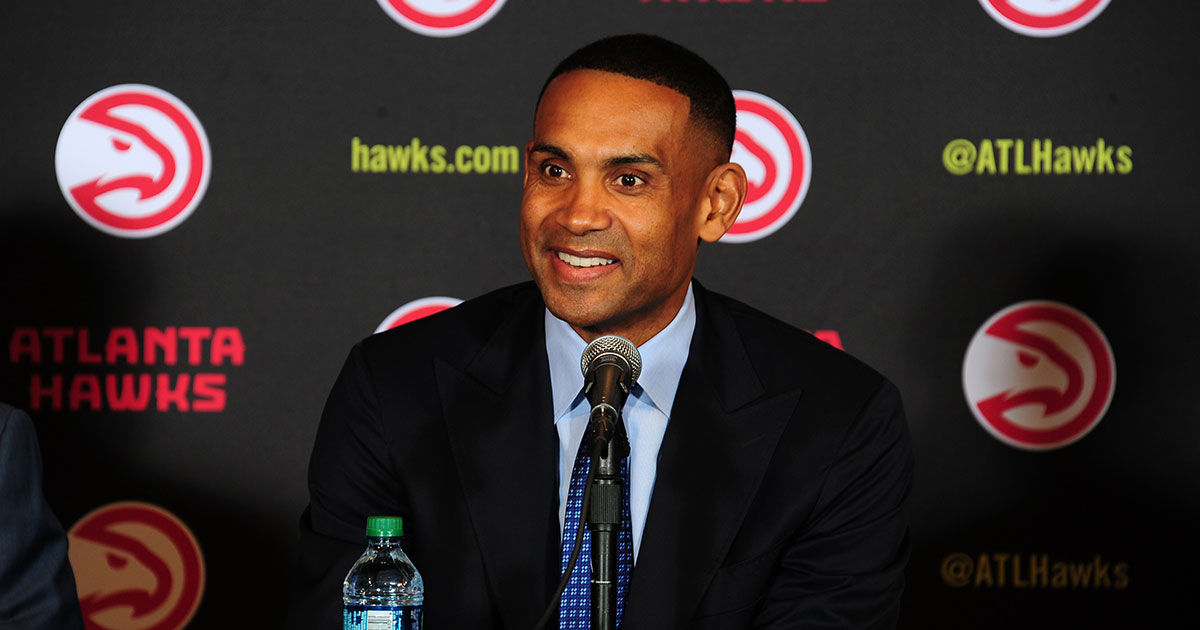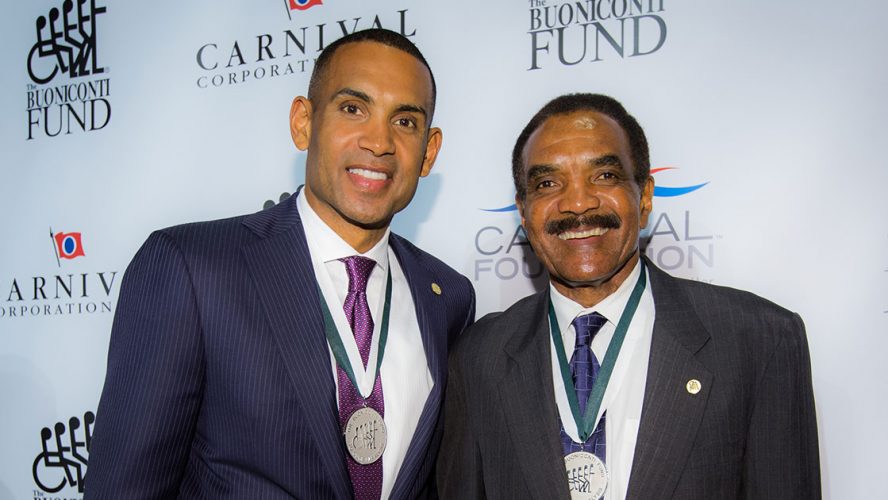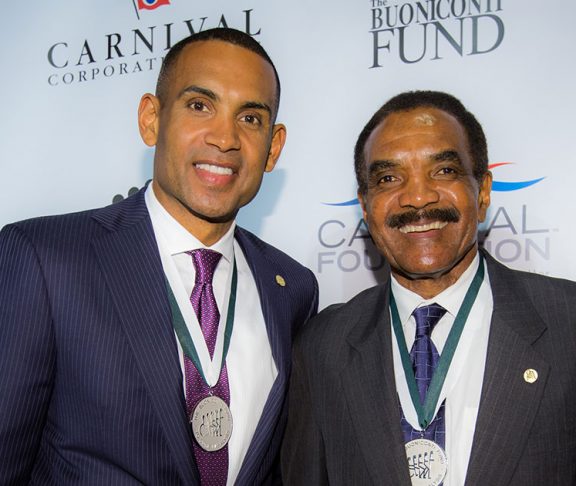In 2019, NBA superstar Grant Hill and the Atlanta Hawks partnered with the Prostate Cancer Foundation to launch the Black History Month Assist Challenge to raise awareness of prostate cancer, which kills Black men at double the rate of other races. This year, the challenge raised more than $500,000 for prostate cancer research. Grant, along with his father Calvin, discussed his work on behalf of the cause.
Why is prostate health important to you?
Grant Hill: I’m at that age, and this is very prevalent in the African American community, but for all men, this is serious. I wanted to bring that awareness and make sure that all men of a certain age get the necessary testing and screening.
Calvin Hill: I’ve had some very close friends who have suffered problems, who had prostate cancer. I can’t tell you how long it’s been, but I’ve been extremely conscious of diet and everything else in terms of making sure that, if I am predisposed, I’m doing everything I can in a preventative way. An ounce of prevention is worth a pound of cure.
How did you and your dad come together and create the Black History Month Assist Challenge?
GH: It was the brainchild of our organization. We have a very diverse population in Atlanta, so I thought taping a message along with my dad would resonate. It aired during Atlanta Hawks games, both on TV and on the jumbotron in our arena. The goal was to get as many eyeballs as possible. We measure success in sports by wins and losses, and I felt like that was a huge win.
CH: The Atlanta market is heavily populated with African Americans, and African American men are disproportionately affected by prostate cancer, so that was a way for them, from an organizational standpoint, to give back and highlight something that affects us. My hat is off to the Hawks’ association and to Tony (Ressler, Atlanta Hawks owner) and Grant for what they’re doing, and for highlighting this terrible disease that can be prevented or at least treated.

Black men are dying from prostate cancer at twice the rate of white men. Why should healthcare providers bring more awareness to this in 2020 and beyond?
GH: I think Black men don’t like to go see the doctor. This is a disease where if you can catch it early, you can treat it, so our habits of not visiting doctors play a huge role. That’s why awareness is necessary — making sure people go and get the screening, get the appointments, get checked.
CH: There is a stigma. I remember a lot of men were skittish about having a doctor examine their prostate, but now with the blood and the PSA (prostate-specific antigens), it’s less intrusive. But people are skittish about a lot of things. A lot of that goes back historically — everybody knows what happened with Tuskegee. We have all these wonderful things that doctors can do that are not intrusive and they can let you know if you’re predisposed.
How should fathers approach conversations with their sons about prostate health?
CH: I think in terms of my father. He wanted the best for me in so many areas, whether it’s in education, he had no hesitation in being honest. I used to always tell Grant, “I’m not your friend, I’m your father.” We’re now friends, we’ve always been friends, but my job when he was a young kid was to protect him with the best of my knowledge. He’s a grown man now with his own family, but I’m still his father and that will never change.
GH: It’s being a great example. Children are heavily influenced and tend to follow the habits and traits of their parents, of their father. You’re not just saving your own life by being smart and disciplined with regard to this, but you’re also influencing your children and getting them to understand the importance of it.
What do you see in the future of prostate health?
GH: We need to continue to talk about it. So much of this can be avoided. We have to continue to educate, inform, and prepare. Just by doing that, we can significantly reduce the number of prostate cancer patients. That’s exciting. It’s an awesome opportunity.

